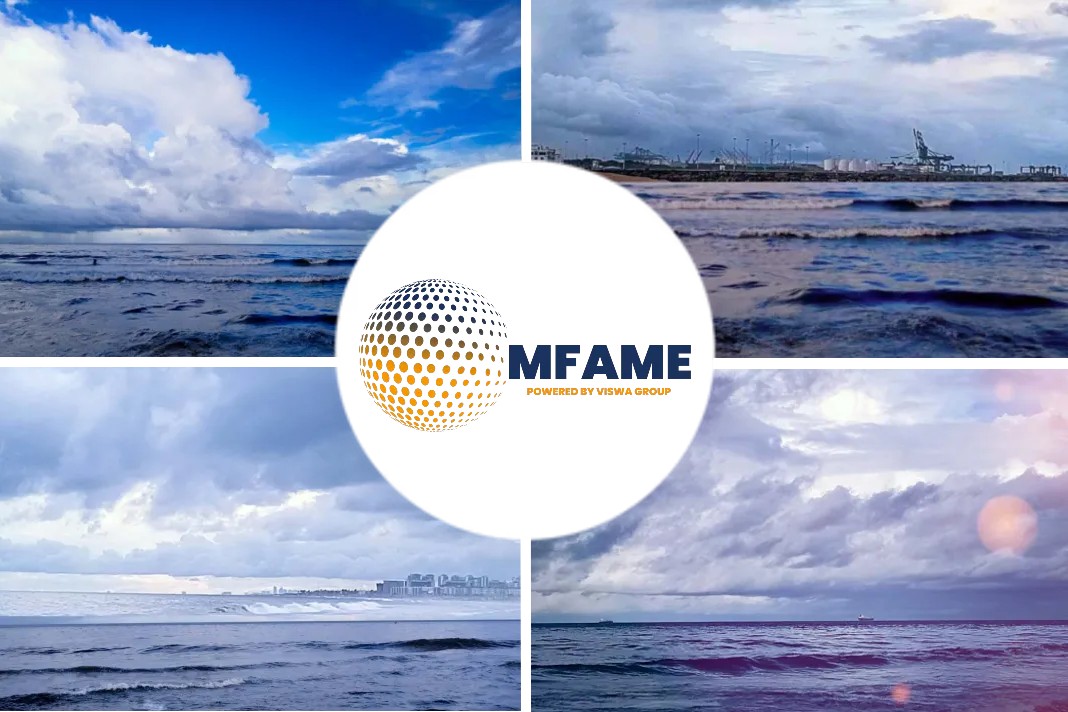A recent news article published in the MOL website states about verification Research of Feasibility and Dissemination of Ocean Thermal Energy Conversion in Mauritius Selected for NEDO Project – Accelerating Commercialization of Ocean Renewable Energy, Following Project Now in Operation in Okinawa.
Verification research of feasibility
TOKYO-Mitsui O.S.K. Lines, Ltd. (MOL; President & CEO: Takeshi Hashimoto) today announced that its verification research of feasibility and dissemination of combined use of deep ocean water with Ocean Thermal Energy Conversion (OTEC) in Mauritius, in cooperation with Xenesys Inc. (President: Kenichi Fukushima; Headquarters: Koto-ku, Tokyo), and Saga University (Note 1), was selected by Japan’s New Energy and Industrial Technology Development Organization (NEDO) as part of an initiative to verify the effectiveness of energy technologies that contribute to the realization of stable supply, economic efficiency, environmental compatibility, and safety under overseas environments and to promote their use in Japan and overseas.
Operation of a 100kW-class OTEC
MOL has acccumulated knowledge in this field by participating since April of this year in the operation of a 100kW-class OTEC demonstration facility in Kumejima Town, Okinawa (Fig. 1), which is operated and managed by Xenesys Inc., the only such facility in Japan.
These initiatives are aimed at speeding up the commercialization of ocean renewable energy.
OTEC technology generates power using differences in the temperature of seawater, which is warmer at the surface and colder at lower depths.
It pumps cold water from deep sea areas below 600m and uses the difference with warmer surface water to extract energy.
What is the unique feature of OTEC?
A unique feature of OTEC is that it is not affected by weather, which makes it more stable.
In addition, the cold marine deepwater, even after it is used for power generation, is unchanged and still at a low enough temperature for secondary use in various fields, such as fisheries, agriculture, and air conditioning.
Because of these characteristics, OTEC is drawing attention as a sustainable power generation technology.
Research on OTEC is in progress
Research on OTEC is progressing in Hawaii, South Korea, and Nauru, but it has yet to be commercialized. MOL aims to commercialize OTEC power generation as soon as possible in Japan and overseas by operating the Kumejima OTEC demonstration facility and conducting the verification research in Mauritius, also by utilizing the knowledge and know-how accumulated through its various offshore business and its supply chain network.
MOL has implemented a range of activities to protect and restore the environment and contribute to local communities in Mauritius (Note 2) since July 2020, when an MOL-chartered bulk carrier, the Wakashio, grounded off the island.
Mauritius established a road map
Mauritius established a road map to raise its percentage of renewable energy to 60% by 2030.
OTEC, which can reliably generate power 24 hours a day regardless of weather conditions, has great potential in Mauritius, thanks to the island’s advantageous geographical location in the Indian Ocean.
Secondary use of seawater after power generation can also help other industries on the island.
These factors contributed to MOL’s decision to plan this verification research in Mauritius.
MOL is also involved in wave power projects (Note 3) in addition to OTEC, to advance the commercialization of ocean renewable energy.
(Note 1)
The joint proponent Xenesys Inc. and joint researcher Saga University have the world’s most advanced OTEC technology and participate in various OTEC projects around the world.
Xenesys Inc.:http://www.xenesys.com/english/index.html
Saga University:https://www.ioes.saga-u.ac.jp/en/
(Note 2)
MOL conducts social contribution activities through the Mauritius Environmental and Social Contribution Team, natural environmental protection and recovery projects including protection of mangroves and coral reefs, and financial support for public institutions and local non-governmental organizations (NGOs) as well as local governments.
Furthermore, it opened its Mauritius Representative Office in October 2020 with the objectives of mid-to-long-term cooperation and responses with local authorities and communities in Mauritius.
MOL is one of a few Japanese companies doing business on-site in Mauritius and the only one to assign a Japanese resident officer to focus on social contribution activities in the country.
Website about MOL’s Action towards Environmental Recovery and Social Contribution in Mauritius:
https://www.mol.co.jp/en/sustainability/incident/index.html
(Note 3) Please refer to the following press releases related to wave power projects in which MOL participates.
- January 7, 2021: Bombora and Mitsui O.S.K. Lines Forge Partnership to Identify Marine Energy Project Opportunities in Japan
- October 8, 2021: Wave Power Project in Mauritius Selected for METI Subsidy Programs -MOL’s Unique Business to Contribute to Society and the Environment in Mauritius-
- January 21, 2022: Mitsui O.S.K. Lines, Ltd. and Bombora Wave Power strengthen their collaboration through an investment
[MOL Group 5 Sustainability Issues]
MOL Group will contribute to realizing a sustainable society by promoting responses to sustainability issues, which are identified as social issues that must be addressed with priority through its business.
We anticipate this initiative to contribute especially to the realization of “Environment -Conservation for Marine and global environment-“ and “Human & Community -Contributing to the growth and development of people and communities-.”
Did you subscribe to our daily Newsletter?
It’s Free! Click here to Subscribe
Source: MOL


















